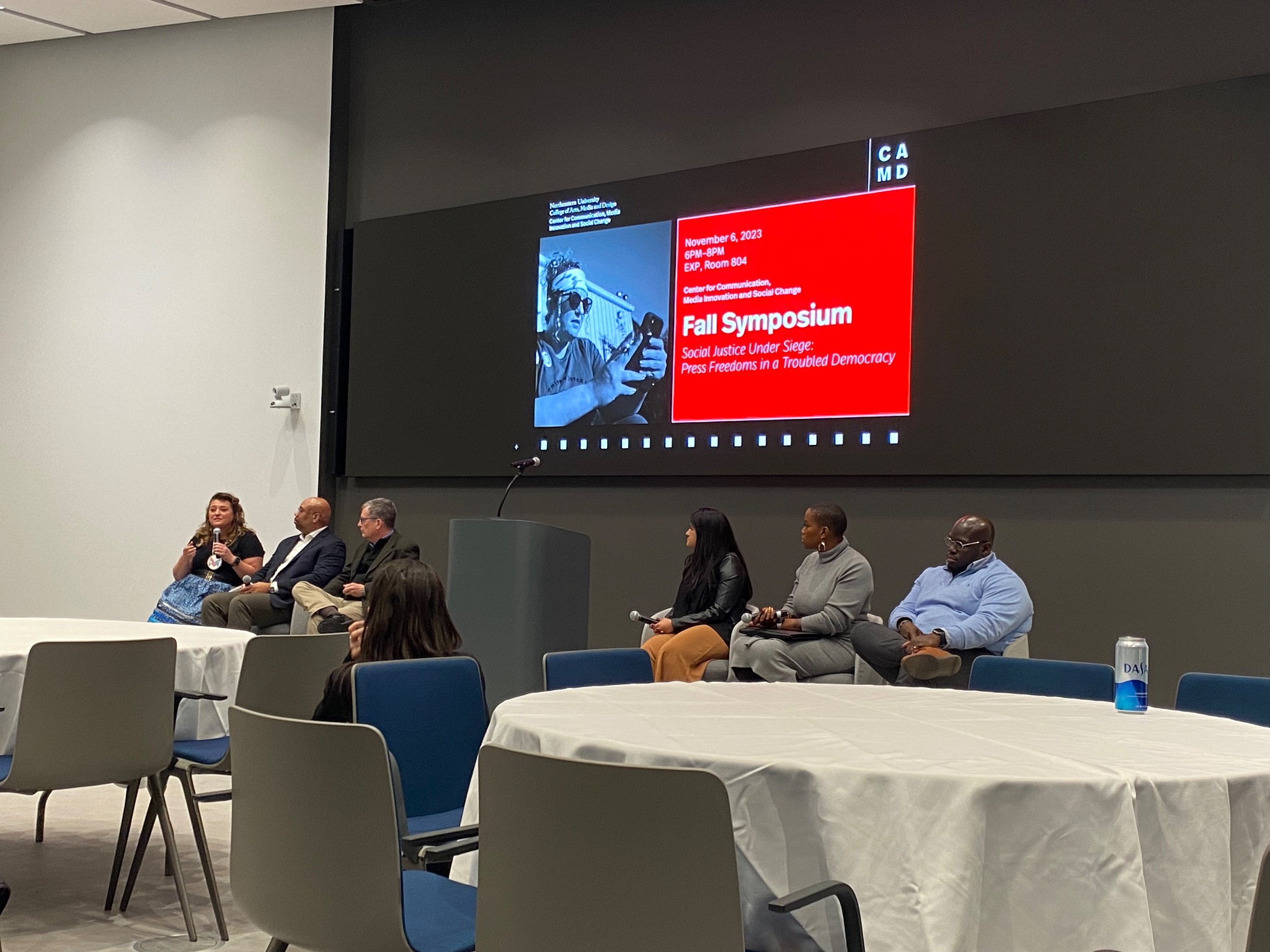Optimism about the journalism industry from a surprising source

Angel Ellis sees journalism as “an act of love.” She is optimistic about the future of the industry, and sees a lifetime of work cut out for her. She will not be “complicit in [her] own demise.”
Ellis has already faced more pushback and barriers than an average journalist will face in their entire career. She works for Mvskoke Media, which serves the Muscogee Creek Nation in Tulsa, Oklahoma. Muscogee Creek Nation is a sovereign state that has a government independent of that of Oklahoma, which means they can pass laws, govern the nation and decide the budget as they see fit. In 2018, a law threatened Ellis’ livelihood: the removal of protections for journalists.
The saga unfolds in the 2023 documentary “Bad Press,” directed by Rebecca Landsberry-Baker. A snippet of the documentary was shown to Northeastern students and faculty at the Fall Symposium hosted by the Northeastern Center for Communication, Media Innovation and Social Change on Nov. 6.
In her keynote speech, Ellis drew comparisons between indigenousvalues and the journalistic code of ethics. She spoke of the importance of integrity and its relation to acting independent, how wisdom and truth are two sides of the same coin and how, above all, journalism is an “act of love.” In her experience as an indigenous person of the Muscogee Creek community, she sees relationships as one of the most important things in life, and in journalism. She views writing as a way to make people known, and for marginalized people like indigenous folks, it is particularly important. In the documentary, she said that she felt she was truly making a difference by reporting on her community, which is a goal all journalists aspire to.
Ultimately, protections for journalism in her community have been restored, though she says it is never guaranteed. Free press is something a lot of people take for granted, and the perspective of someone who has fought hard to win that right is unique and invaluable. It personally gave me a sense of appreciation for free press that a semester of studying the history of the First Amendment somehow never did. A panel of Northeastern journalism professors spoke on the idea of “press under siege” at large and continued to ask Ellis questions.
At a time when so many aspects of journalism are changing, whether that is ad revenue, subscribership, readership, massive layoffs in the industry and more, it can feel like a very scary time to enter the field. Optimistic is not a word I would use to describe my attitude about the future of the journalistic industry, gut churning dread would be more accurate.
Ellis however, is optimistic. Journalism is so important to her community and she said she is not afraid to brag about it, she urged students to do the same. Despite my fear about a future journalism career, Ellis vowed to go “mother hen” on anybody threatening journalists. I am happy someone like her exists and I hope to carry her same determination, humility and courage into my future.
Post a comment